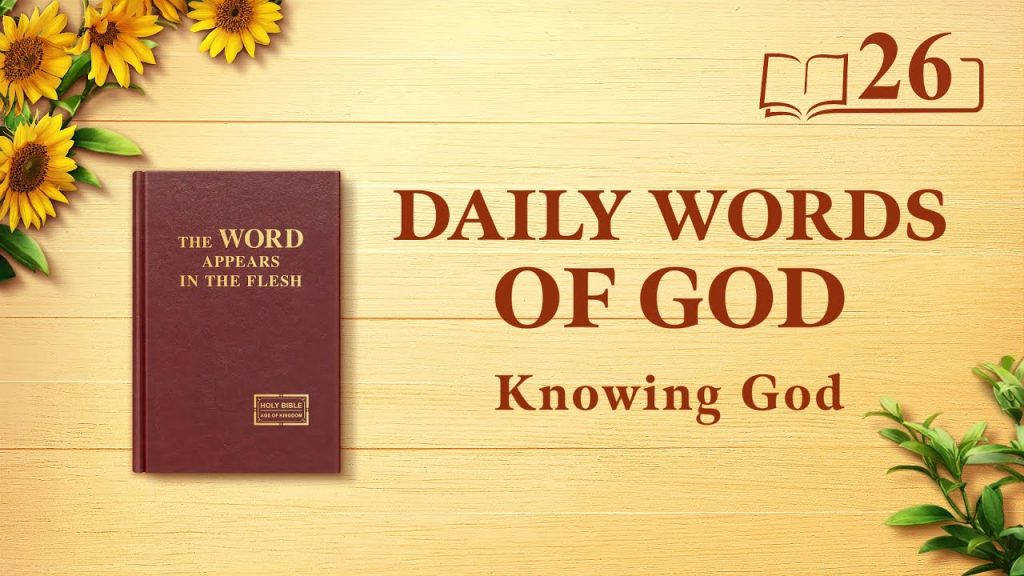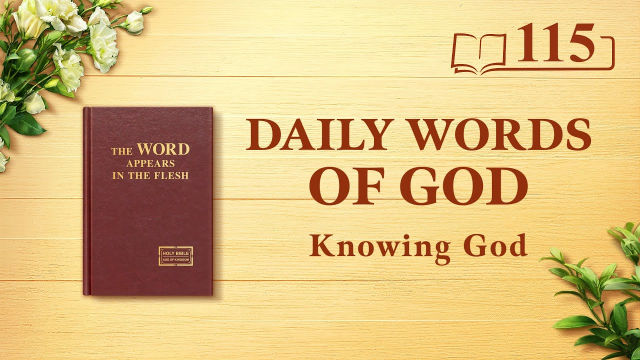Daily Words of God: Knowing God | Excerpt 59
Job After His Trials
(Job 42:7–9) And it was so, that after Jehovah had spoken these words to Job, Jehovah said to Eliphaz the Temanite, My wrath is kindled against you, and against your two friends: for you have not spoken of Me the thing that is right, as My servant Job has. Therefore take to you now seven bullocks and seven rams, and go to My servant Job, and offer up for yourselves a burnt offering; and My servant Job shall pray for you: for him will I accept: lest I deal with you after your folly, in that you have not spoken of Me the thing which is right, like My servant Job. So Eliphaz the Temanite and Bildad the Shuhite and Zophar the Naamathite went, and did according as Jehovah commanded them: Jehovah also accepted Job.
(Job 42:10) And Jehovah turned the captivity of Job, when he prayed for his friends: also Jehovah gave Job twice as much as he had before.
(Job 42:12) So Jehovah blessed the latter end of Job more than his beginning: for he had fourteen thousand sheep, and six thousand camels, and a thousand yoke of oxen, and a thousand she asses.
(Job 42:17) So Job died, being old and full of days.
Those Who Fear God and Shun Evil Are Looked Upon With Cherishment by God, While Those Who Are Foolish Are Seen as Lowly by God
In Job 42:7–9, God says that Job is His servant. His use of the term “servant” to refer to Job demonstrates Job’s importance in His heart; though God did not call Job something more esteemed, this appellation had no bearing on Job’s importance within God’s heart. “Servant” here is God’s nickname for Job. God’s multiple references to “my servant Job” show how He was pleased with Job, and although God did not speak of the meaning behind the word “servant,” God’s definition of the word “servant” can be seen from His words in this passage of scripture. God first said to Eliphaz the Temanite: “My wrath is kindled against you, and against your two friends: for you have not spoken of Me the thing that is right, as My servant Job has.” These words are the first time that God had openly told people that He accepted all that was said and done by Job after God’s trials of him, and are the first time that He had openly confirmed the accuracy and correctness of all that Job had done and said. God was angry at Eliphaz and the others because of their incorrect, absurd discourse, because, like Job, they couldn’t see the appearance of God or hear the words He spoke in their lives, yet Job had such an accurate knowledge of God, whereas they could only blindly guess about God, violating God’s will and trying His patience in all that they did. Consequently, at the same time as accepting all that was done and said by Job, God grew wrathful toward the others, for in them He was not only unable to see any reality of fear of God, but also heard nothing of the fear of God in what they said. And so God next made the following demands of them: “Therefore take to you now seven bullocks and seven rams, and go to My servant Job, and offer up for yourselves a burnt offering; and My servant Job shall pray for you: for him will I accept: lest I deal with you after your folly.” In this passage God is telling Eliphaz and the others to do something that will redeem their sins, for their folly was a sin against Jehovah God, and thus they had to make burnt offerings in order to remedy their mistakes. Burnt offerings are often offered to God, but what is unusual about these burnt offerings is that they were offered to Job. Job was accepted by God because he bore testimony to God during his trials. These friends of Job, meanwhile, were revealed during the time of his trials; because of their folly, they were condemned by God, and they incited the wrath of God, and should be punished by God—punished by making burnt offerings before Job—after which Job prayed for them to dispel God’s punishment and wrath toward them. God’s intention was to bring shame upon them, for they were not people who feared God and shunned evil, and they had condemned the integrity of Job. In one regard, God was telling them that He did not accept their actions but greatly accepted and took delight in Job; in another, God was telling them that being accepted by God elevates man before God, that man is loathed by God because of his folly, and offends God because of it, and is lowly and vile in God’s eyes. These are the definitions given by God of two types of people, they are God’s attitudes toward these two types of people, and they are God’s articulation of the worth and standing of these two types of people. Even though God called Job His servant, in God’s eyes this servant was beloved, and was bestowed with the authority to pray for others and forgive them their mistakes. This servant was able to talk directly to God and come directly before God, his status was higher and more honorable than those of others. This is the true meaning of the word “servant” spoken by God. Job was given this special honor because of his fear of God and shunning of evil, and the reason why others were not called servants by God is because they did not fear God and shun evil. These two distinctly different attitudes of God are His attitudes toward two types of people: Those who fear God and shun evil are accepted by God, and seen as precious in His eyes, while those who are foolish do not fear God, and are incapable of shunning evil, and are not able to receive God’s favor; they are often loathed and condemned by God, and are lowly in God’s eyes.
God Bestows Authority Upon Job
Job prayed for his friends, and afterward, because of Job’s prayers, God did not deal with them as befitted their folly—He did not punish them or take any retribution upon them. And why was that? Because the prayers for them of God’s servant, Job, had reached His ears; God forgave them because He accepted Job’s prayers. And what do we see in this? When God blesses someone, He gives them many rewards, and not just material ones, either: God also gives them authority, and entitles them to pray for others, and God forgets, and overlooks those people’s transgressions because He hears these prayers. This is the very authority that God gave to Job. Through Job’s prayers to halt their condemnation, Jehovah God brought shame upon those foolish people—which, of course, was His special punishment for Eliphaz and the others.
—The Word, Vol. 2. On Knowing God. God’s Work, God’s Disposition, and God Himself II





